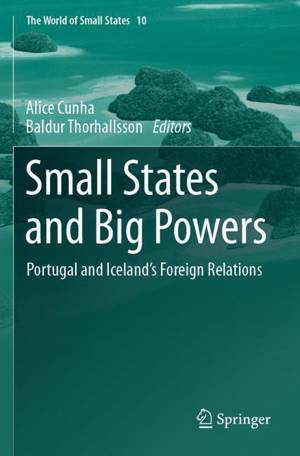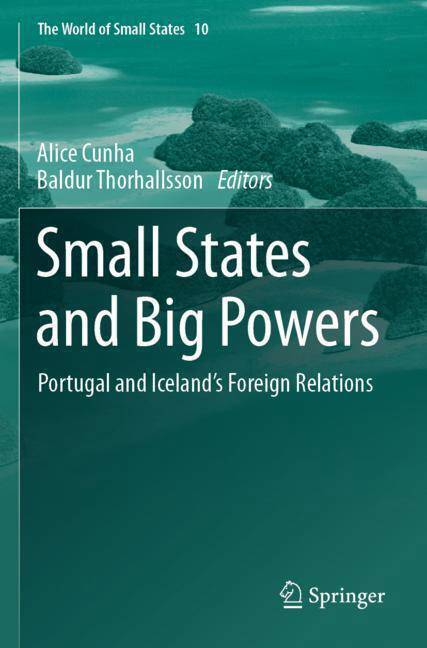
- Retrait gratuit dans votre magasin Club
- 7.000.000 titres dans notre catalogue
- Payer en toute sécurité
- Toujours un magasin près de chez vous
- Retrait gratuit dans votre magasin Club
- 7.000.0000 titres dans notre catalogue
- Payer en toute sécurité
- Toujours un magasin près de chez vous
Small States and Big Powers
Portugal and Iceland's Foreign Relations
Description
Foreign policy is one of the most complex policies of every state, and Portugal and Iceland are no exception. The "Small States and Big Powers: Portugal and Iceland's Foreign Relations" book analyses the importance of relations with big powers or regional and international organisations from a shelter theory perspective, detailing the degree of political, economic and societal shelter that they have provided to Portugal and to Iceland over time.
Despite having followed distinct paths, Portugal and Iceland have some important similarities in their foreign policy, namely in relation to the European and the Atlantic dimensions and their participation in regional organisations. The book examines their decisions to join or not to join regional organisations, and both countries' bilateral relations with other important parts of the world, namely Africa, the Nordic states and China.
This book compares the foreign policies of Portugal and Iceland considering their commonly identified status as small states and place them within the shelter theory framework, and its findings indicate that both countries need to balance their international relations with shelter provided by different actors. Their size and political and economic capabilities matter in their bilateral and multilateral relations. It is therefore in both countries' interest to maintain strong cooperation not only with big powers, but also regional and international organisations, depending on their field of action, in order to flourish politically, economically and socially.
Spécifications
Parties prenantes
- Editeur:
Contenu
- Nombre de pages :
- 165
- Langue:
- Anglais
- Collection :
- Tome:
- n° 10
Caractéristiques
- EAN:
- 9783031423475
- Date de parution :
- 15-10-24
- Format:
- Livre broché
- Format numérique:
- Trade paperback (VS)
- Dimensions :
- 155 mm x 235 mm
- Poids :
- 277 g

Les avis
Nous publions uniquement les avis qui respectent les conditions requises. Consultez nos conditions pour les avis.





